Tech
Sign up for our newsletter
We summarize the week's scientific breakthroughs every Thursday.
-
 Genetics
GeneticsStanley Qi gives CRISPR a makeover to redefine genetic engineering
By adapting CRISPR/Cas9, Stanley Qi has given genetic engineers a plethora of new tools.
-
 Science & Society
Science & SocietyParag Pathak uses data and algorithms to make public education fairer
Economist Parag Pathak has overhauled school choice systems across the United States. Now he’s assessing what makes for a good education.
By Sujata Gupta -
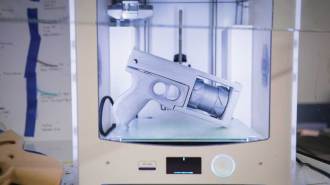 Science & Society
Science & Society3-D printed ‘ghost guns’ pose new challenges for crime-scene investigators
Researchers are analyzing the ballistics of 3-D printed guns and the plastic they leave behind to help forensic scientists track these DIY weapons.
-
 Tech
TechThis device harnesses the cold night sky to generate electricity in the dark
A new thermoelectric generator uses the temperature difference between Earth and outer space to create electricity after the sun goes down.
-
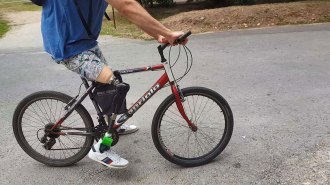 Tech
TechA new prosthetic leg that senses touch reduces phantom pain
A prosthetic leg that can sense foot pressure and knee angle helped two men walk faster and reduced phantom leg pain.
-
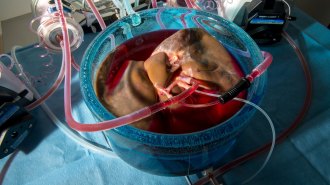 Humans
HumansSupercooling tripled the shelf life of donor livers
Cooling organs to subzero temperatures could help them last longer, making lifesaving transplants available to more people.
-
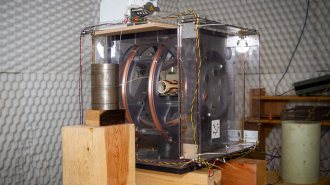 Tech
TechA mini chemical lab could one day test for toxic nerve agents in the field
Portable lab equipment that detects nerve agents could help judge when it’s safe to return to previously exposed areas.
-
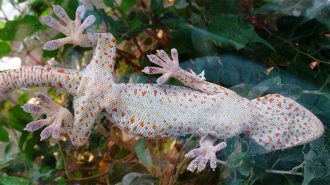 Life
Life50 years ago, scientists thought they knew why geckos had sticky feet
50 years ago, scientists thought gecko feet had suction cups that allowed the animals to stick to surfaces. Today we know tiny hairs do the job.
By Kyle Plantz -
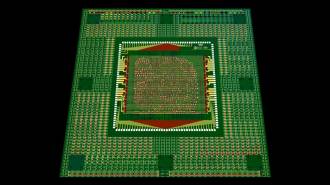 Tech
TechA chip made with carbon nanotubes, not silicon, marks a computing milestone
Silicon’s reign in cutting-edge electronics may soon over. The carbon nanotube could be its successor.
-
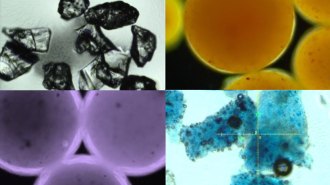 Tech
TechTiny magnetic coils could help break down microplastic pollution
Carbon nanotubes designed to release plastic-eroding chemicals could clear the long-lasting trash from waterways.
-
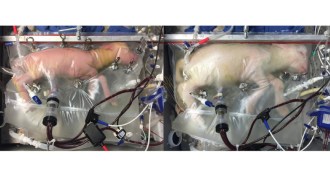 Tech
Tech50 years ago, lambs survived but didn’t thrive inside artificial wombs
Artificial wombs to support preemie babies are closer to reality.
-
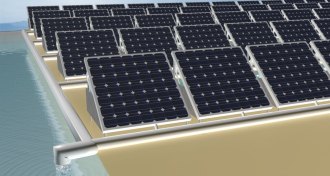 Tech
TechThis solar-powered device produces energy and cleans water at the same time
Someday, the two-for-one machine could help curb electricity and freshwater shortages.